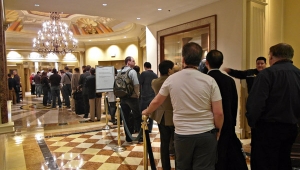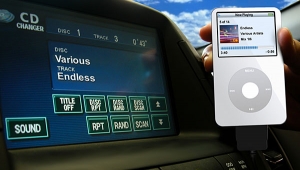| Columns Retired Columns & Blogs |
Won't make a difference. If there's a buck to be made, somebody will make it. That is why I think this whole watermarking issue is bogussomebody will come up with technology to defeat it, at least enough to pirate. And there will always be Joe Cheapo out there willing to buy anything as long as it's a buck less.


























